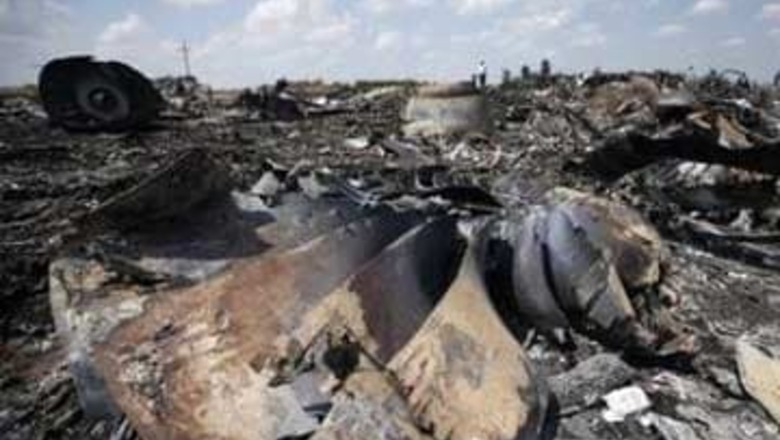
views
Ottawa: The cockpit voice recorder of the Malaysian airliner downed over Ukraine is in good condition, the United Nations civil aviation body said on Wednesday, adding that it was holding talks with airlines and states on how to assess the danger posed by conflicts.
Malaysian Airlines flight MH17 was shot down by a missile over eastern Ukraine last week, killing almost 300 people. The plane crashed in territory held by Russian-backed separatists, raising fears the wreckage might be tampered with.
Officials from the Montreal-based International Civil Aviation Organization (ICAO) are helping Ukrainian and Dutch authorities probe the crash. Most of the victims on the Amsterdam-Kuala Lumpur flight were Dutch.
"The cockpit voice recorder is in good condition ... the digital flight data recorder is still under review," ICAO said in a statement.
The Dutch Safety Board, which is leading the international inquiry into the crash, said earlier in the day that there was no evidence the voice recorder had been tampered with.
Britain said on Wednesday it had taken delivery of the two recorders, a day after a senior rebel leader in Ukraine handed them over to Malaysian experts.
ICAO, which groups 191 countries, has no operational role and does not issue advisories about the dangers of armed conflict.
Indeed, no single global body has overall responsibility for keeping the skies safe for civil aviation.
ICAO said it was consulting with the International Air Transport Association and regional aviation organizations "on the respective roles of states, airlines and international organizations for assessing the risk of airspace affected by armed conflict".
The statement gave no further details.
Reuters reported on Tuesday that representatives to the agency were considering whether ICAO should expand its role and issue safety advisories about the risks posed to aviation over conflict zones.
"The use of weapons against international civil aviation absolutely cannot be tolerated," ICAO Council President Olumuyiwa Benard Aliu said in Wednesday's statement.
ICAO representatives said privately they doubted whether ICAO would take on more responsibility for safety matters, citing a lack of expertise and concerns about liability.
They also predicted resistance to the idea from national governments, who have total control over their own airspace and may not be willing to hand over power to ICAO.
At the time of the crash, Ukraine had closed the airspace above the disputed region up to a height of 32,000 feet (9,800 meters). It has since banned all flights over the area.
The head of IATA said on Tuesday it was up to governments and air traffic control authorities to provide information about routes and restrictions.



















Comments
0 comment